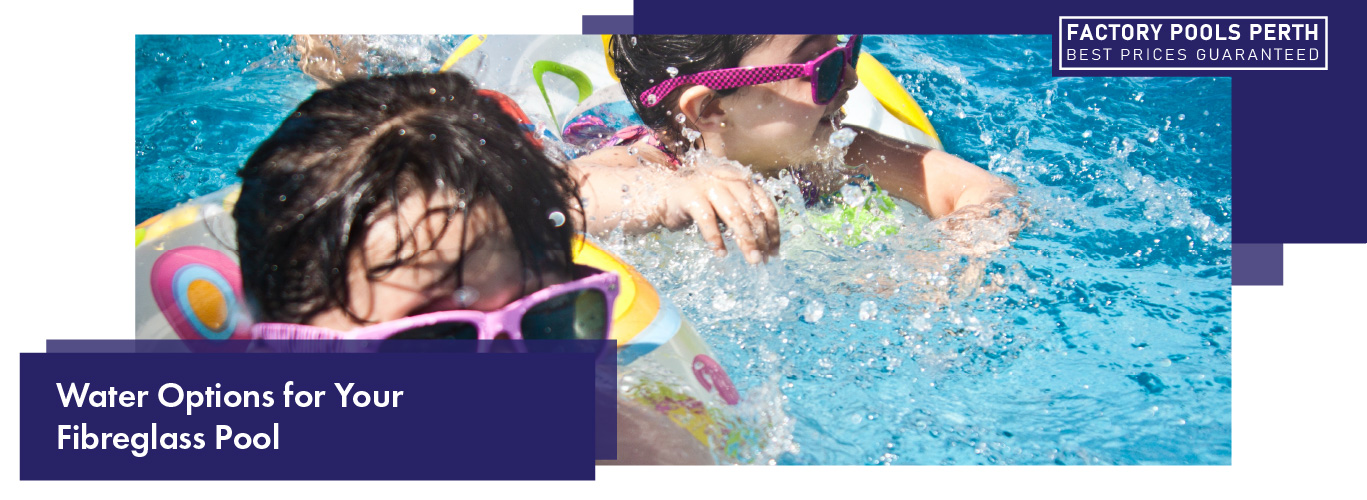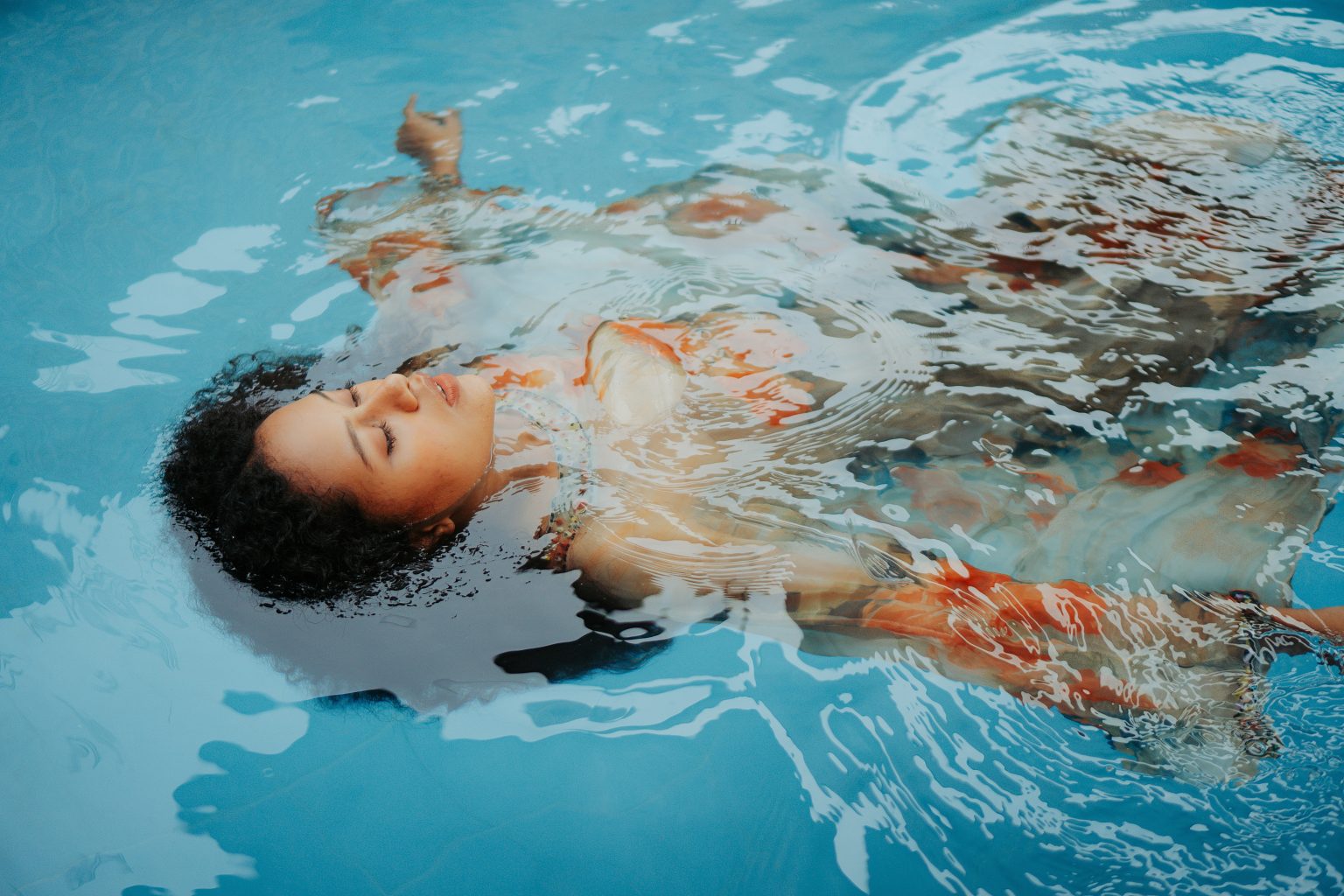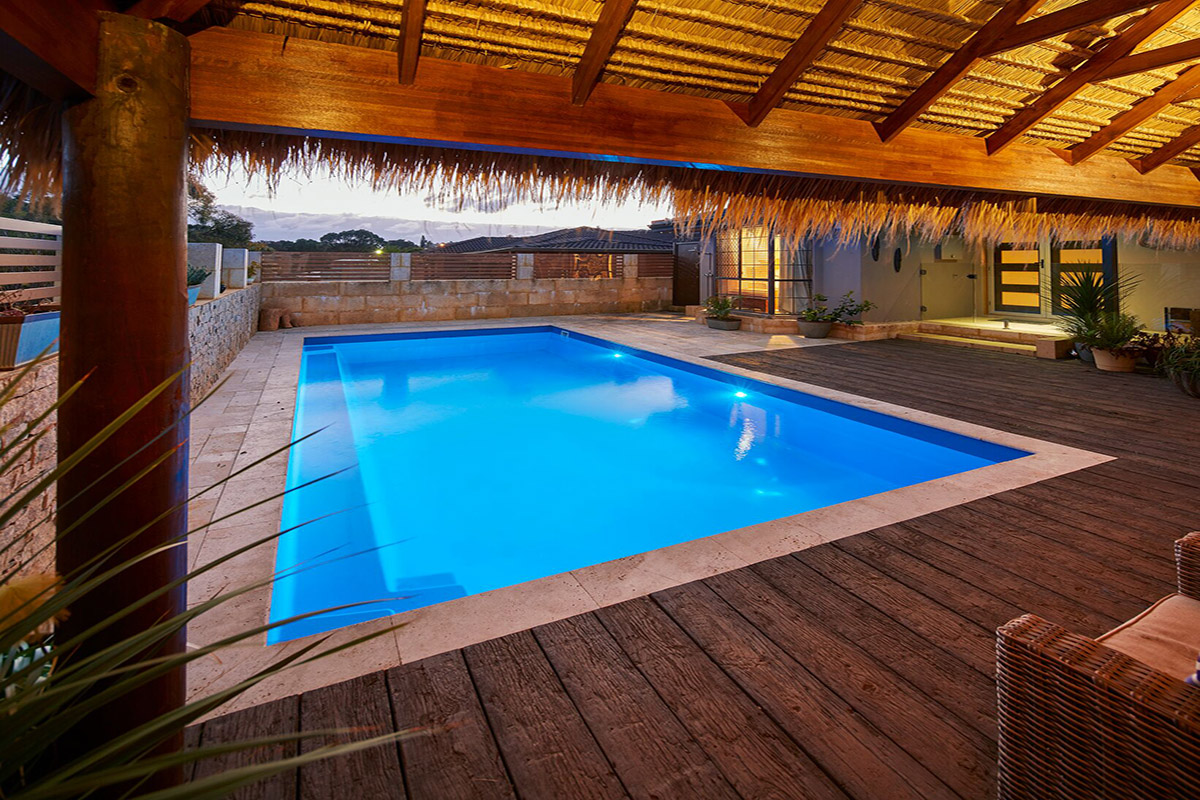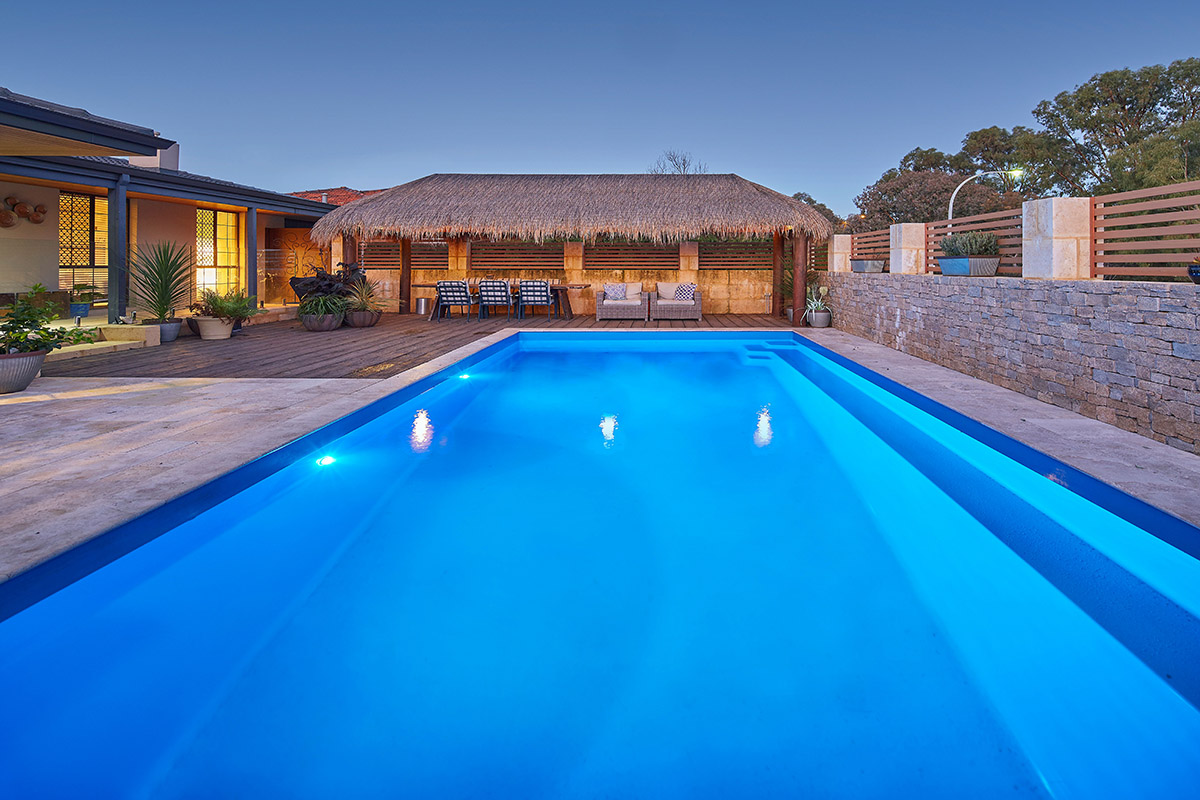Water Options for Your Fibreglass Pool
While traditional chlorine and saltwater pools continue to dominate the market, there are many others to choose from nowadays. Throughout this article, we’ll share some information about the different water options available for pools to help you make your choice.

Why is pool sanitisation so important?
The sanitising option you choose will actively kill contaminants such as bacteria and pathogens which can make you sick. Without it, your pool would become green and slimy rather quickly and swimming in it would be a risk to your health. Not only that, but a dirty pool looks unsightly too.
Let's run through the different options available to you:
Traditional Chlorine
Traditional chlorine is the original sanitiser for pools, and it continues to be the most common. To clean your water via this method a higher dose of chlorine is added to the pool in the form of liquid, powder, or tablets. It is highly effective at killing bacteria and algae.
Advantages
Economical to buy.
Easy to use.
Effective cleaner.
Cheap to install equipment.
Disadvantages
Can be abrasive on the skin and eyes.
You have to store and handle hazardous chemicals.
A higher dose of chlorine is used to clean water.
Running costs can be expensive.
Water balancing can be more tricky.
Saltwater Chlorinators
Another popular option is saltwater. Salt is added to the pool, and a saltwater chlorinator converts the salt into a low dose of chlorine which is used to clean the water. It is gentler on the body which makes it a great option for swimmers with sensitive skin.
Advantages
Safe to handle and store.
Gentler on the body.
No chlorine smell.
Low maintenance.
Easier to balance water chemistry.
A lower dose of chlorine in the water.
Low maintenance.
Softer feeling water.
Disadvantages
A higher initial outlay to install.
More equipment needed.

Mineral chlorinator
A mineral chlorinator works much like a saltwater chlorinator. The main difference is that instead of adding salt, you add minerals to your pool and the minerals are converted into a very small dose of chlorine.
Advantages
Gentle on the skin, hair, and eyes. Pool minerals often contain magnesium chloride, potassium chloride and sodium chloride which can give the water a silky feel.
A mineral pool is not corrosive, so it won’t damage the body, clothes, or pool equipment.
Bathing in minerals is known to offer many health benefits such as detoxifying, relaxing the nervous system and alleviating skin conditions.
Environmentally friendly due to minimal chlorine levels in the water.
Disadvantages
Chlorine is still needed to clean the water sufficiently.
Pool Bromine
Bromine is very similar to chlorine; it just isn’t as strong in smell or as harsh on the body. Bromine is commonly used in spas as the heat doesn’t affect the bromines ability to sanitise the water. It is not a good option for outdoor pools as it is extremely sensitive to sunlight, and the stabiliser does not protect it from breaking down. It works well in indoor pools.
Advantages
An ideal option for spas or hot tubs.
Not as harsh on the body.
Doesn’t have a strong smell.
Disadvantages
Not suited to spas or pools that are exposed to direct sunlight.
More expensive than chlorine
Not ideal chlorine allergy suffers.
UV Pool System
UV pool systems differ from others as they primarily rely on UV light to sanitise the water rather than chemicals. The UV light can help to kill harmful germs and bacteria in the water as it passes through the filtration system.
Advantages
Fewer chemicals are needed to clean the water as the UV light takes care of most of it.
Low maintenance
Works well to eradicate contaminants in the water.
The UV lamps are long-lasting.
The UV light never escapes the UV chamber, so it is completely safe.
Disadvantages
You still need to use chemicals to sanitise the water.
You need to replace the UV lamps on schedule to ensure they are working to their full potential.

Pool Ionisers
A pool ioniser works by releasing positively charged heavy metal ions such as copper and silver ions into your water to kill bacteria and other contaminants. While they can kill off a large portion of nasties in your pool water, it still needs chlorine to help with the rest.
Advantages
Minimises the amount of chlorine needed to sanitise your pool.
Suitable for both indoor and outdoor pools.
Effective at producing clean and sanitary water.
Great at controlling algae.
Disadvantages
It may stain your pool if the correct levels aren’t maintained.
You still need chlorine.
It can take some to work in larger swimming pools.
Doesn’t oxidise organic matter.
Ozone Pool System
Pool ozone is a gas, and it destroys parasites, bacteria, and viruses. It’s also a good oxidiser which allows it to kill other nasty contaminants that may be lurking in your pool. The ozone works in the circulation system, so you don’t have to add it to your pool, in fact, you can’t, it must be generated on-site using an ozone generator.
Advantages
No need to store hazardous chemicals or go out to buy them as they are generated on-site.
Oxidises well.
It’s safe.
Kills parasites and pathogens.
Disadvantages
Needs chlorine to clean the water properly, it is not a complete sanitiser alone.
Pool Hydrogen Peroxide
Hydrogen peroxide is typically used to replace chlorine, and it needs to be paired with sunlight as the UV rays create a reaction with the chemical to eliminate harmful bacteria.
Advantages
A great algaecide.
Suited well to an outdoor pool with ample sunlight.
Oxidises effectively.
Disadvantages
Not as powerful as chlorine.
Needs sunlight or UV light to work properly.
Cannot be used in swimming pools that have DE filters.

Natural pools
If you want to forgo chemicals altogether, you may be interested in a natural pool. Rather than using chemicals to clean the water, a natural pool has a biofilter that uses plants and rocks to free the water from impurities such as algae.
Advantages
No chemicals are used at all, ever!
Looks organic.
Environmentally friendly.
No adverse reactions to skin, eyes, or hair.
The most natural pool sanitisation option available.
Cost-effective to run long term as no chemicals are used.
Disadvantages
You need to have a dedicated biozone area for plants, rocks etc which can take up space in your swimming area.
It may have a green or brown hue.
You will have to maintain plants.
Wildlife may be drawn to your natural pool.
Expensive upfront cost.
Which one is best for my fibreglass pool?
Deciding which one is best for your fibreglass swimming pool ultimately comes down to your personal preference. The good news is quality fibreglass pools are compatible with all sanitising agents and none have an adverse effect on the pool shell which gives you the option to choose whichever system you like. One of the main things you should factor in is the ongoing cost as this can add up over the lifetime of your pool.
If you are still unsure and need some advice, get in touch with our friendly team here at Factory Pools Perth, we will happily answer any questions you have to help make your choice that much easier. Contact us today!

